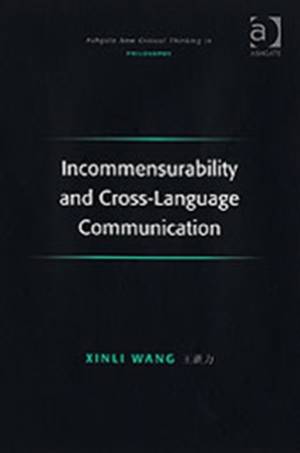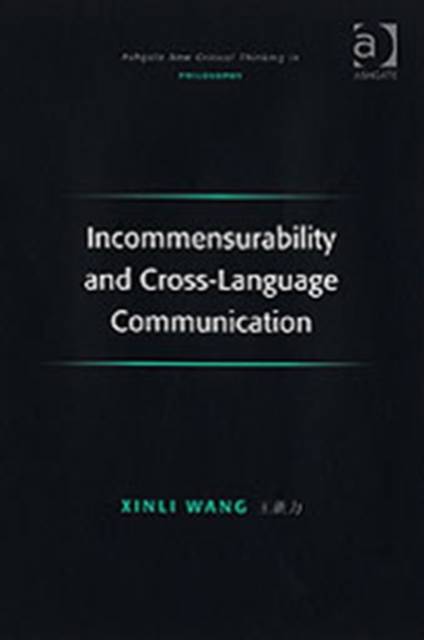
Bedankt voor het vertrouwen het afgelopen jaar! Om jou te bedanken bieden we GRATIS verzending (in België) aan op alles gedurende de hele maand januari.
- Afhalen na 1 uur in een winkel met voorraad
- Gratis thuislevering in België vanaf € 30
- Ruim aanbod met 7 miljoen producten
Bedankt voor het vertrouwen het afgelopen jaar! Om jou te bedanken bieden we GRATIS verzending (in België) aan op alles gedurende de hele maand januari.
- Afhalen na 1 uur in een winkel met voorraad
- Gratis thuislevering in België vanaf € 30
- Ruim aanbod met 7 miljoen producten
Zoeken
Omschrijving
A dominant epistemological assumption behind Western philosophy is that it is possible to locate some form of commonality between languages, traditions, or cultures - such as a common language or lexicon, or a common notion of rationality - which makes full linguistic communication between them always attainable. Xinli Wang argues that the thesis of incommensurability challenges this assumption by exploring why and how linguistic communication between two conceptually disparate languages, traditions, or cultures is often problematic and even unattainable. According to Wang's presuppositional interpretation of incommensurability, the real secret of incommensurability lies in the ontological set-ups of two competing presuppositional languages. This book provides many original contributions to the discussion of incommensurability and related issues in philosophy and offers valuable insights to scholars in other fields, such as anthropology, communication, linguistics, scientific education, and cultural studies.
Specificaties
Betrokkenen
- Auteur(s):
- Uitgeverij:
Inhoud
- Aantal bladzijden:
- 384
- Taal:
- Engels
- Reeks:
Eigenschappen
- Productcode (EAN):
- 9780754630340
- Verschijningsdatum:
- 30/04/2007
- Uitvoering:
- Hardcover
- Formaat:
- Genaaid
- Afmetingen:
- 156 mm x 234 mm
- Gewicht:
- 712 g

Alleen bij Standaard Boekhandel
+ 610 punten op je klantenkaart van Standaard Boekhandel
Beoordelingen
We publiceren alleen reviews die voldoen aan de voorwaarden voor reviews. Bekijk onze voorwaarden voor reviews.









